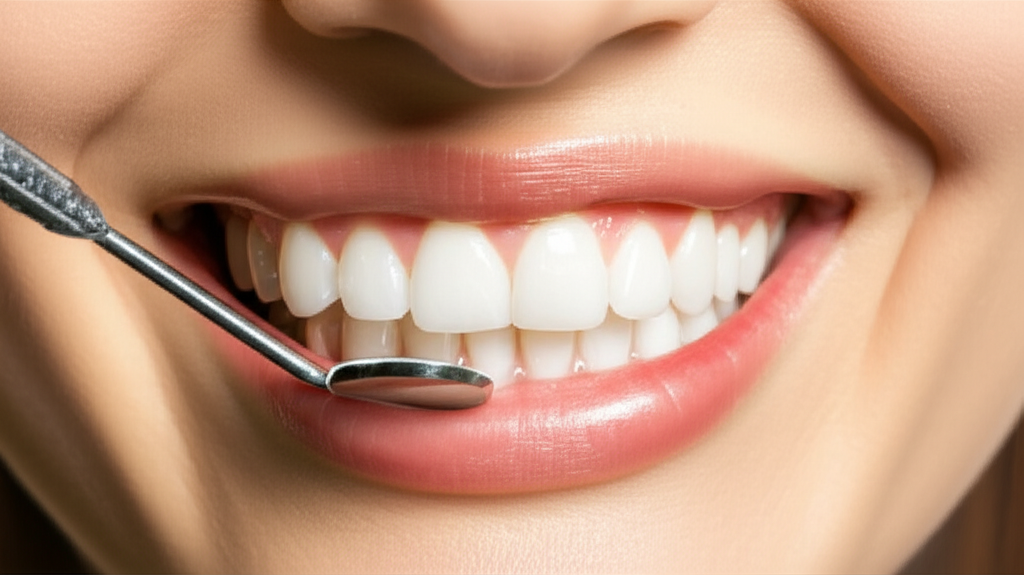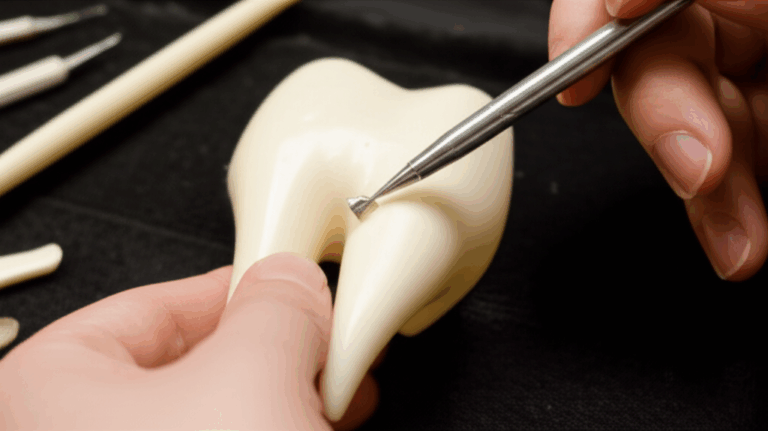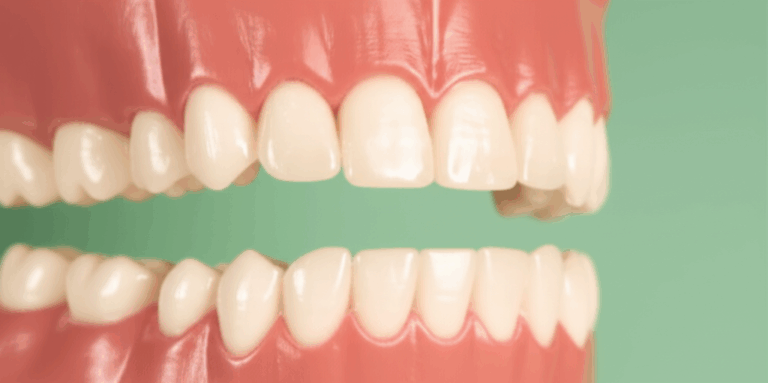
How Long Do Composite Veneers Last? (Maximizing Their Lifespan & Value)
Composite veneers can give you a new, confident smile. But how long do they really last? Will you have them for years, or will they chip, stain, and let you down sooner than you want? In this guide, I’ll explain everything you need to know about composite veneers—how long they last, what makes them last longer, how to look after them, and when you might need a repair or new set. If you want your smile to last or you just want good advice before you get cosmetic dental work, this article is for you.
Table of Contents
What Are Composite Veneers?
Composite veneers are thin coverings made from composite resin—a strong, tooth-colored material. Dentists stick this resin right to the front of your teeth to hide cracks, stains, or spaces. People like them because they don’t cost too much, look real, and can be done in only one dental visit.
Unlike porcelain veneers, which are made in a dental ceramics lab, composite veneers are built up by your dentist right in the chair. That means you can get them fast and they’re good for little changes or a full smile upgrade. They’re especially good on the front teeth and can be changed later if needed.
If you want a not-so-permanent way to make your teeth look better, composite veneers are a good pick.
How Long Do Composite Veneers Usually Last?
Composite veneers usually last about 5 to 7 years. But sometimes, they might only last 2 years, or they might last 10 years if you’re really careful. How long yours last depends on your habits, the dentist’s work, and if you take care of them.
Here’s a simple table to show how long they can last:
| Care Level | Years Composite Veneers Last |
|---|---|
| Not much care | 2 – 3 years |
| Usual care | 5 – 7 years |
| Very good care | 10+ years |
Composite resin is pretty tough, but not as hard as real teeth or porcelain. After a while, veneers can chip, stain, or stop looking shiny. You have to look after them, like you’d take care of a car or nice shoes.
Think about how long you want your smile to stay bright and nice—not just stuck on—for the money you spend.
What Does “Lifespan” Really Mean for Veneers?
When you ask “how long do composite veneers last,” it really means:
A veneer can stay on your tooth for years, but if it goes yellow or loses its glow, you won’t want to smile. Some people get theirs changed early, just because of looks.
“Functional life” means it’s still covering your tooth. “Looking good” means you’re still happy to smile. Good news—taking care of your veneers does both.
What Can Make Composite Veneers Last Longer?
You want your veneers to last. Here’s what helps:
Keep Your Teeth Clean
- Brush two times every day with a soft toothbrush.
- Use toothpaste that isn’t rough—rough kinds can scratch the veneer.
- Floss once a day. Clean gently around the veneers so your gums stay healthy and you don’t get cavities on the edges.
Go to the Dentist
Have a check-up every six months. The dentist or hygienist can polish the veneers, get rid of stains, and see small problems before they’re big.
Watch What You Eat and Drink
Don’t bite down on hard foods like ice, nuts, or hard sweets. These can chip or break your veneers. Sticky foods might pull at the edges.
Things like coffee, tea, red wine, and curry can stain composite. If you like these, rinse your mouth with water right after.
Protect Your Smile
If you grind or clench your teeth at night, wear a night guard. Play sports? Use a sports mouthguard to keep your veneers safe.
Don’t bite your nails, chew on pens, or use your teeth like tools. These bad habits can crack or break veneers.
Which Daily Habits Shorten Veneer Life?
Little things you do each day might slowly ruin your veneers. I’ve seen people upset when their new smile doesn’t last—all because of small things.
Chewing on hard things (or your nails) breaks the composite fast. Biting on ice or fingernails can crack or chip the edges.
Drinking a lot of coffee, soda, or wine will stain composite. Composite veneers can soak up colors and get yellow or brown after some time.
Not brushing and flossing well lets gunk build up near the gums, which can cause gum problems and hurt the bond.
Grinding or clenching your teeth is a big problem too. If you do this while sleeping or awake, it puts a lot of pressure on the veneers and can wear them down or even make them come off.
How Does Your Dentist Affect Veneer Durability?
It’s not just what you do—your dentist makes a big difference.
A dentist with a lot of experience knows how to get the tooth ready, use the right kind of composite, and put it on so it sticks well and looks good for a long time. Good bonding means less worry about chips or the veneers popping off.
There are different types of composite resin and some look nicer and stay shinier than others. Good-quality stuff from a china dental lab or a special veneer lab can give you better results.
So if you want your veneers to last, don’t always go for the cheapest option. Ask about their skills and the products they use.
Are Porcelain Veneers Better Than Composite?
Lots of people ask this! Here’s a quick way to see the difference:
| Feature | Composite Veneers | Porcelain Veneers |
|---|---|---|
| How long | 2 – 10 years | 10 – 15+ years |
| Price | Cheaper | More expensive |
| Toughness | Can chip easier | Very strong |
| Stain | Might stain in time | Don’t stain as much |
| Repairs | Easy to repair | Need to replace |
| Appointments | One visit | Usually two visits |
If you want something cheaper or just for now, composite is a good idea. If you want your teeth to look amazing for a long time, porcelain is the way to go, but it costs more at first.
Can Composite Veneers Be Repaired or Polished?
Yes! One of the best things about composite veneers is that they’re easy to fix. If you chip one, most dentists can fill or smooth it in the office. If they start to go dull or stained, they can often be polished to make them look new for a while.
If the stain is deep or you have a big chip, you might need a new veneer. Sometimes dentists use a blue light to harden the new layer fast and easy.
What to expect:
- Small chip or crack? Your dentist will fix it or polish it quickly.
- Bad stain? First try a pro cleaning. If it doesn’t work, the dentist can put on a new thin layer.
- Big break or lots of problems? Time for a new veneer.
Is It Obvious When Veneers Need Replacement?
Your teeth will usually give you signs! Watch for things like:
- Chips, cracks, or rough parts: These might feel funny when you touch them.
- Stains that won’t come off: Veneers won’t ever look as new as day one, but deep stains stay.
- Loose or wobbly veneer: If it moves, see your dentist soon.
- Gaps near the edge: Food or gunk can get in, so get it checked.
- More tooth pain or cold feeling: The bond might be wearing out.
Seeing your dentist often helps find these things before they get worse.
How Can You Get the Best Value from Your Veneers?
Composite veneers don’t last forever, so get your money’s worth. Here’s how:
Want even more protection? Some labs like a night guard dental lab can make mouthguards just for you.
FAQ: Composite Veneers Lifespan
Can you make composite veneers whiter?
No, teeth whitener doesn’t work on them. If they get dull or stained, you need to polish or replace them.
Do composite veneers fall out?
If they’re well bonded, they don’t usually fall off. But biting really hard or hitting them can make them come off.
Does it hurt to get new composite veneers?
Not really. Most people find getting old ones off and new ones put on pretty easy.
Are composite veneers worth it for how long they last?
They’re not too pricey, look nice, and work well. If you want something cheap and good looking, they are a good idea—if you care for them.
How much to fix a chipped veneer?
Small fixes or a little new bonding are much cheaper than a new veneer. Prices change depending on the dentist and where you live.
Key Points to Remember
- Composite veneers last about 5–7 years for most people.
- With really good care, they can last up to 10+ years.
- Things like grinding teeth, eating hard foods, or skipping cleanings can make them last much less.
- Picking a good dentist and good resin from a solid digital dental lab is very important.
- It’s easy to fix small chips and stains—don’t wait!
- Want your smile to last even longer? Ask about porcelain or mixed types.
Looking after your smile is up to you. Make good choices, find a great dentist, and enjoy your confident grin for years.
References
- American Academy of Cosmetic Dentistry. (n.d.). Composite Veneers Patient Information.
- Journal of Esthetic and Restorative Dentistry: Long-term Outcomes of Composite Resin Veneers.
- Consumer Guide to Dentistry: Composite vs. Porcelain Veneers Comparison.
- china dental lab
- night guard dental lab
- dental ceramics lab
- digital dental laboratory








